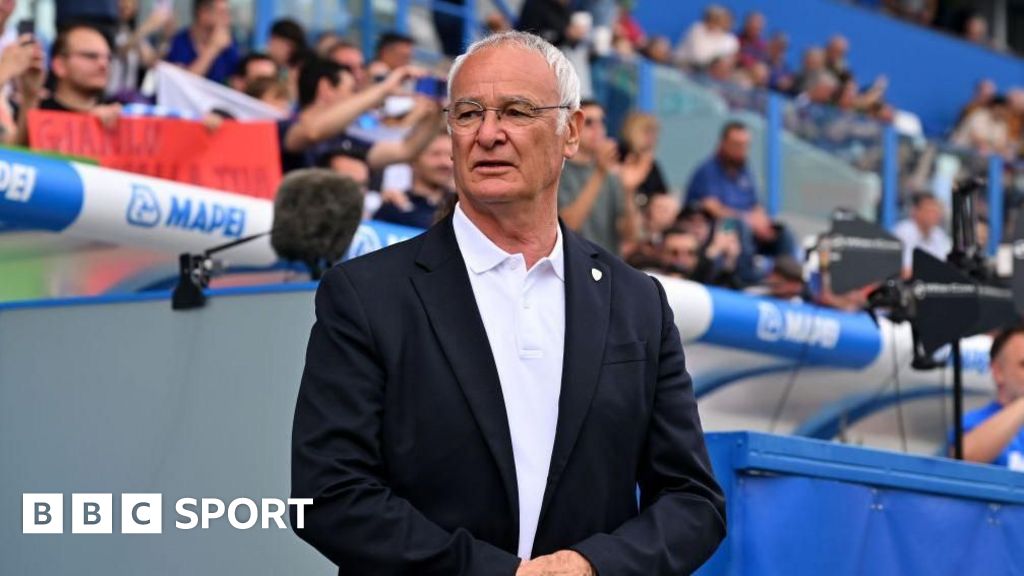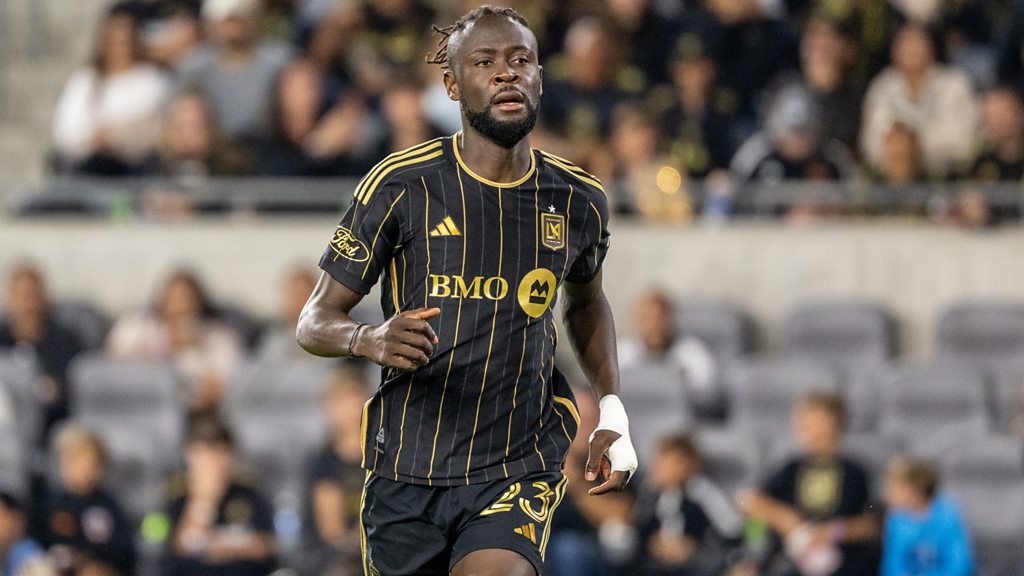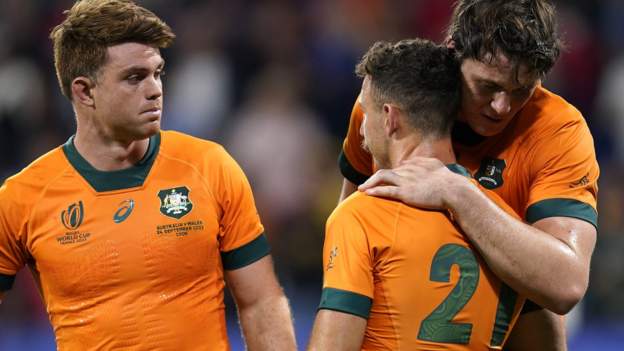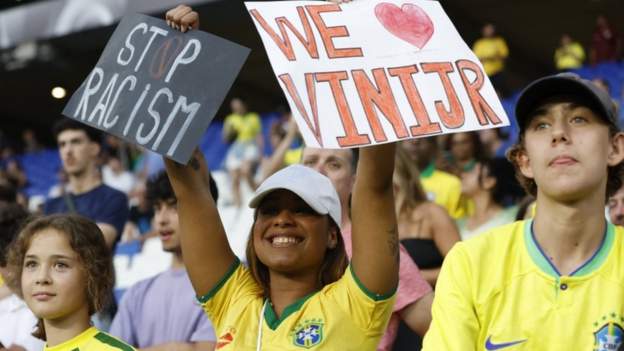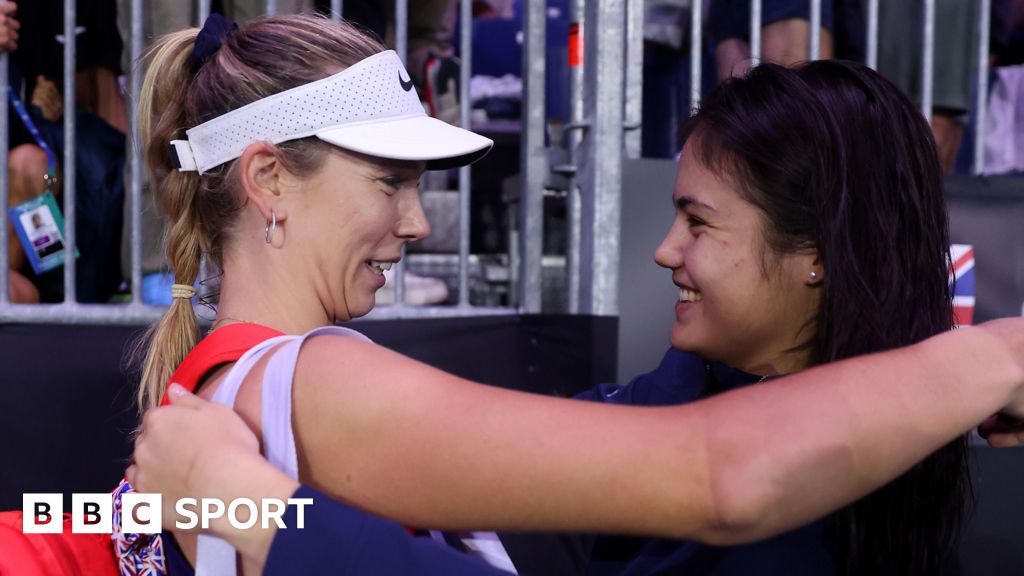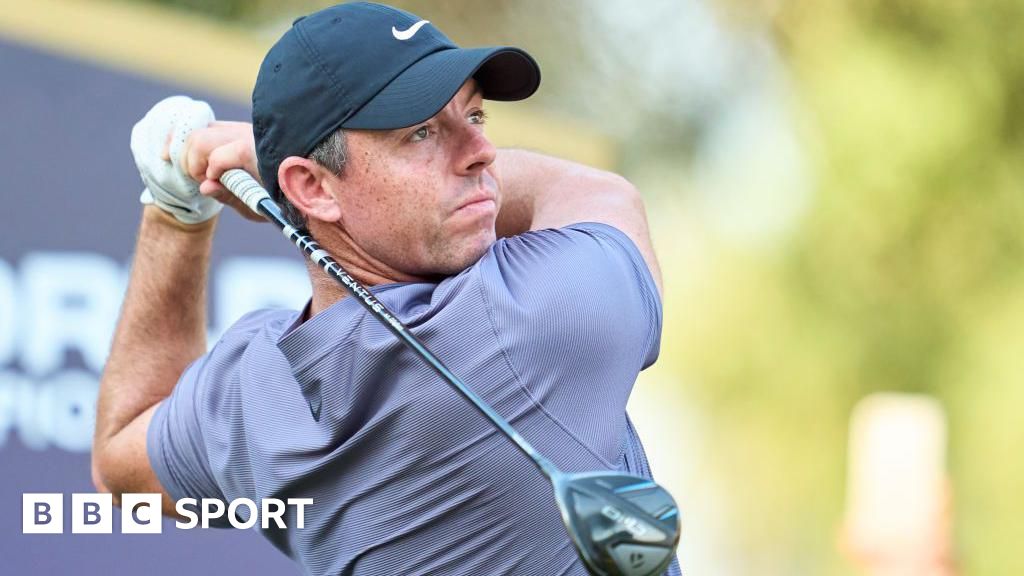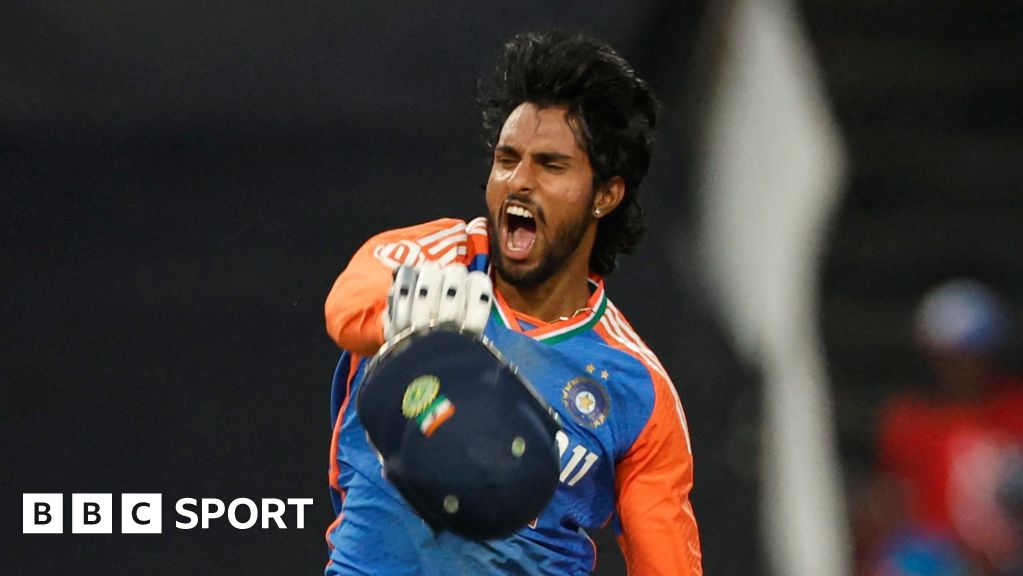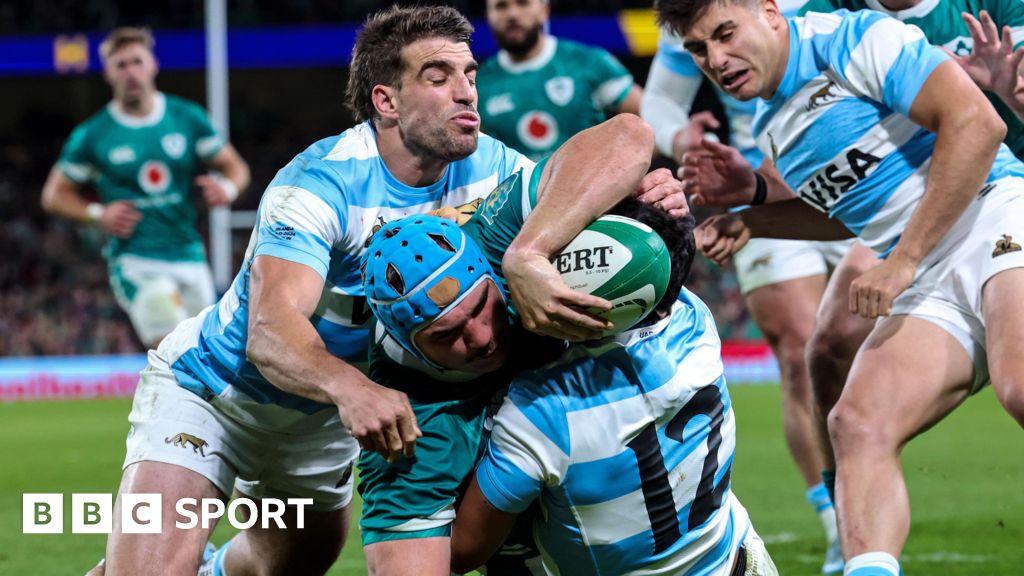Australia have been knocked out of a Rugby World Cup before the knockout stage for the first time.
An early exit leaves plenty of questions for Australia to answer before they enter the next World Cup in 2027 as hosts.
What has gone wrong?
Michael Lynagh played in the first three Rugby World Cups for Australia, winning the tournament in 1991. He spoke with Matt Dawson on a recent episode of the BBC’s Rugby Union Daily podcast to discuss whether the problems lie deeper than just a poor showing in France.
Early exit ‘terribly disappointing’
The Wallabies only won two pool games – against Georgia and Portugal – at this year’s World Cup, also losing 22-15 to Fiji and 40-6 against Wales, to finish third in Pool C.
ML: “Australia have not managed to fire a shot at this World Cup and that is really disappointing. I feel for the players as they are not bad players and they have worked really hard, but when it comes to getting out on the field it does not seem to click for them.
“I feel the way this has gone at the World Cup, there are going to be a few which might struggle to get over this experience. I hope not, but my overriding feeling is one of sadness.
“For the Australian supporters – not just the ones back at home, but those who have financially and emotionally supported the team in France – to be knocked out so early is terribly disappointing.
“You have to give credit to the opposition. It is not a fluke that Fiji are a good team, they beat England at Twickenham before the tournament, and Wales have surprised a lot of people with how they’ve played.
“The opposition has been good, but Australia have been disappointing.”
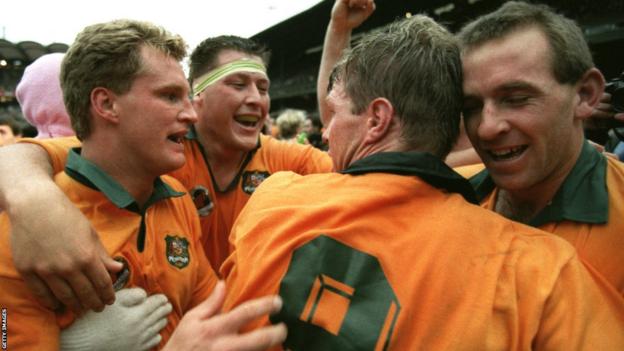
The talent diversion
Popularity for rugby union has declined over the past decade in Australia, with other sports such as soccer, the AFL (Australian rules football) and rugby league gaining wider attention.
ML: “It is the culmination of a downward trend in the past 10 or 15 years and rugby’s been heading this way.
“This was a real wake-up call that something has to be done about rugby in Australia and the decline of rugby, in terms of people attending games in Australia and the youngsters coming through are choosing different sports which are better funded than rugby. There is a real issue behind all this as well.
“We all hope that a successful Australian rugby team can carry us through and plaster over these problems, but I am afraid this time it has not.
“There is talent there at schoolboy level and, going back, the traditional pathway for an Australian rugby player was that talent was identified at school and because there were not that many schools playing you could identify that talent.
“It was nurtured very well from that 15-year-old age group, right the way through to under-18 schoolboys and under-21s, which is now under-20s.
“It was looked after and then you go to a club, your state and then Australian rugby.
“We seem to have lost that ability to connect juniors with clubs and states. Juniors seem to disappear and go to league or lose interest in union and go and do other things. Some do Aussie rules and football now.
“There seems to be a disconnect and until we reconnect that and try to get that pathway reconnected, I think we will still struggle to have people coming through.
“Aussie rules and rugby league can afford to go into all the traditional rugby union schools and actually find the best talent and take it, because kids look at their rugby league stars, and they can give contracts to these kids straight out of school.”
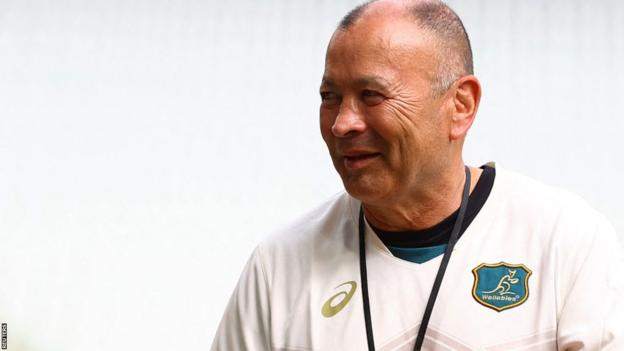
‘We cannot continue this downward spiral’
The next four years are hugely important for rugby union in Australia – they host the next Rugby World Cup in 2027 and prior to that, in 2025, the British & Irish Lions will tour down under.
ML: “It is very important for Australia that they are competitive, not only from a global point of view, but from an Australian point of view.
“If you are not filling out stadiums for a Lions tour and there’s not commercial interest from television and all that sort of thing, there is real trouble for Australian rugby.
“We want to be competitive and have the local support behind us and the whole country behind us, as opposed to AFL and rugby league supporters laughing at us and putting us down, which is what is happening at the moment.
“It is at a low point at the moment and a lot of people, myself in particular, have seen it coming for a while and been worried about it.
“Having five teams [based in Australia playing in the Super Rugby competition] has really dissipated that playing togetherness. We just do not have the playing population to fill these teams, so maybe some tough decisions are going to have to come up as to how we structure the whole situation.
“The results at this World Cup show that the current system is not working and has not been working for a while and it will take some time for any changes to come to fruition. Something has to happen, we cannot continue this downward spiral.
“It’s a big problem, there are hopefully smarter people than me involved in making decisions going forward, but they’re not going to be popular.
“Unless we do them, there is a real possibility of Australian rugby disappearing down a big sinkhole.”

